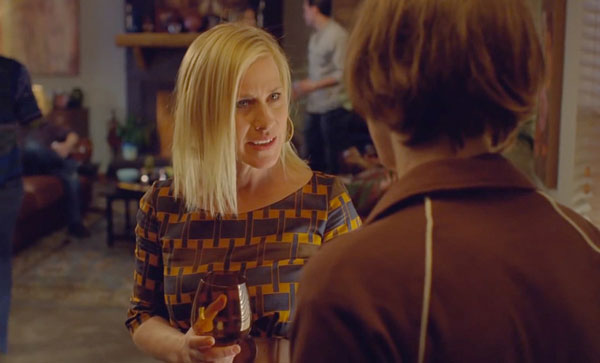
“If I think of it in terms of sports, if an athlete is in their zone and not thinking and just operating on their skill set, that’s when they play best. And I think acting is the same way.” – Director Sean Durkin
With 2020’s The Nest, Canadian filmmaker Sean Durkin released the second feature film he directed after 2011’s critically-acclaimed Martha Marcy May Marlene. One of the reasons why that film received so much acclaim was the acting performances, and in an interview with The Film Stage about The Nest, Durkin spoke about his approach to working with actors and the importance of directors developing trust with actors.
Regarding directing actors to their best performances, Durkin relates it to an athlete’s performance when he or she is in the “zone.” He explains:
“I think if you get great actors and if you choose the right actors, it’s not about coaching anyone. It’s about talking about the idea, about being in it. If something’s not going right, the person’s probably distracted. If I think of it in terms of sports, if an athlete is in their zone and not thinking and just operating on their skill set, that’s when they play best. And I think acting is the same way. Oftentimes, when I’m shooting a scene, if I don’t know where to put the camera, there’s probably a problem with the script. And it was a really interesting realization to happen. It’s been completely consistent with scenes that are really well written that I just know exactly how to shoot [them]. Early on, I invite the actor to change the words if they need to, so that they feel right for the person saying them, because I think that’s also a big part of getting a good performance, making sure that they can seamlessly deliver those lines and believe that they’re their own.“
Going further, Durkin points out the importance of a director and actor developing trust in order for the actor to offer his or her best performance:
“What I want as a director is an actor to feel safe enough to give me their full range. Because if an actor doesn’t trust a director, they hold back. And so then an actor starts thinking, and I’ve talked to actors about this, then they start thinking about like, ‘Oh, well, I’m just going to keep it in this range, because I don’t trust what this director is going to do with the material afterwards, and I don’t want to be left exposed.’ I really feel for them. Sometimes I watch actors that I know and I feel so upset, because I know what they have to give, and I know how good they are. I think it’s about trust, and it’s about letting the actors do their best work. That’s about protecting their performance, and knowing their tics, knowing their bad habits, knowing what is a good take, what’s not a good take, and knowing where to end the scene. You want the actor to feel safe to do a bad take. You want them to go too far. And then we can all laugh about it afterwards, because it’s a safe space to do that. “




